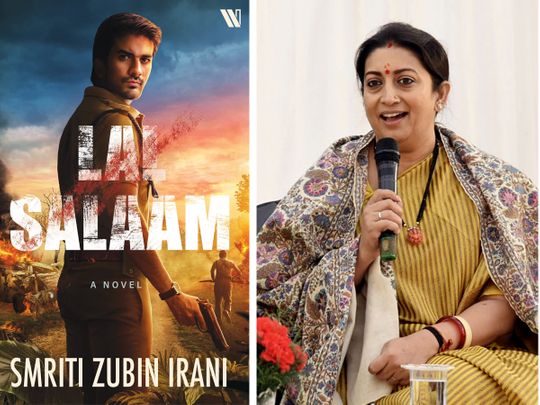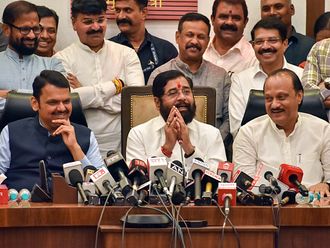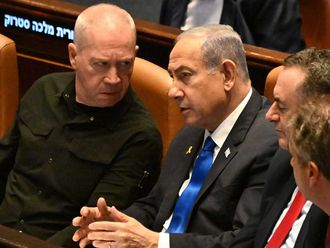
Smriti Zubin Irani is currently India’s Union Minister of Women and Child Development. Earlier she served as the Minister of Textiles, Information and Broadcasting, and Human Resource Development (now Ministry of Education). In the 2019 general elections, she made history by defeating Congress leader, Rahul Gandhi, from Amethi — the Gandhi family borough for forty years.
But apart from being a high-profile leader in the ruling Bharatiya Janata Party (BJP), she is also well known in India and in the Indian diaspora as “Tulsi.” This is the character she played for over 8 years in one of the most popular soap operas on the Indian small screen, Kyunki Saas Bhi Kabhi Bahu Thi (Because the mother-in-law was also once a daughter-in-law).
This teledrama, going across three generations, shows the good daughter-in-law, played by Irani, saving, after many twists and turns, the entire extended family, later turning into the good mother-in-law too. Given the traditional rivalry between these two key roles in an Indian joint family, Irani’s character won the hearts and minds of millions of Indian viewers by playing the reconciler and matriarch.
Gracious and graceful
Unfortunately, I missed this entire show, not being too fond of TV serials. But I did have occasion to interact with Irani when she was our Human Resource Development Minister. I found her gracious and graceful, extremely well-read and sharp, besides being fluent in many languages including Punjabi, Marathi, Bengali, and Gujarati in addition, of course, to Hindi and English.
Just last month, Irani added another feather, so to speak, to her already well-decorated cap. She published a fast-paced and entertaining political thriller, Lal Salaam. In her Acknowledgements at the end of the book, she thanks her maternal grandfather or “Dadu,” Nirmal Chandra Bagchi, who taught her “to write, to think, to be fearless.” We might be sure that he would have been extremely proud of her debut novel, as must other members of her family.
Lal Salaam (or Red Salute) is inspired by the April 2010 massacre of 76 Central Reserve Police Force (CRPF) personnel by the Maoist insurgents in district Dantewada in Chhattisgarh. The ongoing conflict, going back to the Naxalbari rebellion of 1967, has claimed thousands of lives so far.
What makes the situation so tragic is that some of India’s most deprived and disadvantaged tribal populations are caught in the crossfire between the security forces and the armed revolutionaries.
A face-paced page-turner
When I met her at the launch of another book, Urban Naxals (2018), for which I wrote the Foreword, I learnt that Irani too wished to write on this issue. What she had set out to pen was a well-researched book of non-fiction, but I am glad it turned into a novel.
A fast-paced, whodunit, it is quite a page-turner. It is also an even-handed portrayal of all the key components of the insurgency — the tribals, the security forces, the rebels, in addition to the complex and corrupt web of businessmen, contractors, and politicians.
Thankfully, the book is less didactic, even political, than a murder mystery. In that lies its real accomplishment. One is reminded of an Agatha Christie crime thriller as key characters keep getting bumped off one after the other. Only two are left in the end, the protagonist, Superintendent of Police, Vikram Pratap Singh, and his adversary, whom I shall not name. I don’t want to play the spoiler.
Singh is posted in the remote, fictional mofussil town of Ambuja, surrounded by dense jungles and hostile Maoists. He has a personal angle in this assignment because he wants to investigate and avenge the brutal killing of his childhood chum, Darshan Kumar, one of the CRPF officers ambushed and slain.
In the little town, he meets all the locals of import, including the biggest businessman, Mr Sethi, his daughter, Anjali, who has also lost her husband to insurgents, her best friend and local journalist, Devika, the social worker Sahai, a PhD scholar from Delhi who is a Maoist sympathiser, plus a motley crew of fellow policemen and district officials. But there are others, more shadowy and sinister, who seem to be the hidden ideologues and perpetrators of the deadly violence that plagues the area.
Web of abuse, violence, corruption
As the action proceeds, we get deeper and deeper into a web of abuse, violence, corruption, money laundering, and sleaze. Devika’s late father, a senior regional newspaper editor, has gone right inside the remote forest camp of the Maoists and witnessed a horrible crime about which he can do little but record it in a diary. It is that crucial document which will reveal the real villains and killers, but will Singh get hold of it?
Or will he face the same fate as his friend, Darshan? When Devika, whom he has grown so fond of, is also murdered, Singh also sees red, determined to bring the culprits to book. Irani’s greatest accomplishment is her tightly woven and gripping plot. With her sure sense of the dramatic, she pushes the narrative towards its inexorable climax, but with a twist at the end. Perhaps, the story, as she has penned it, will lend itself to an OTT miniseries or film.
Irani now joins other ministers in the Modi cabinet, such as External Affairs Minister S Jaishankar, Minority Affairs Minister Mukhtar Abbas Naqvi, Minister for Labour and Employment and Environment, Forest and Climate Change, Bhupendra Yadav, and former Education Minister, Ramesh Pokhriyal “Nishank,” who have authored books while in office.
There is much to appreciate in our leaders. They have the most gruelling of jobs, being constantly in the public eye in the highly competitive and hard-nosed world of politics in the world’s largest and most complex democracy. That some of them find the time also to make their mark as writers is to be celebrated.











